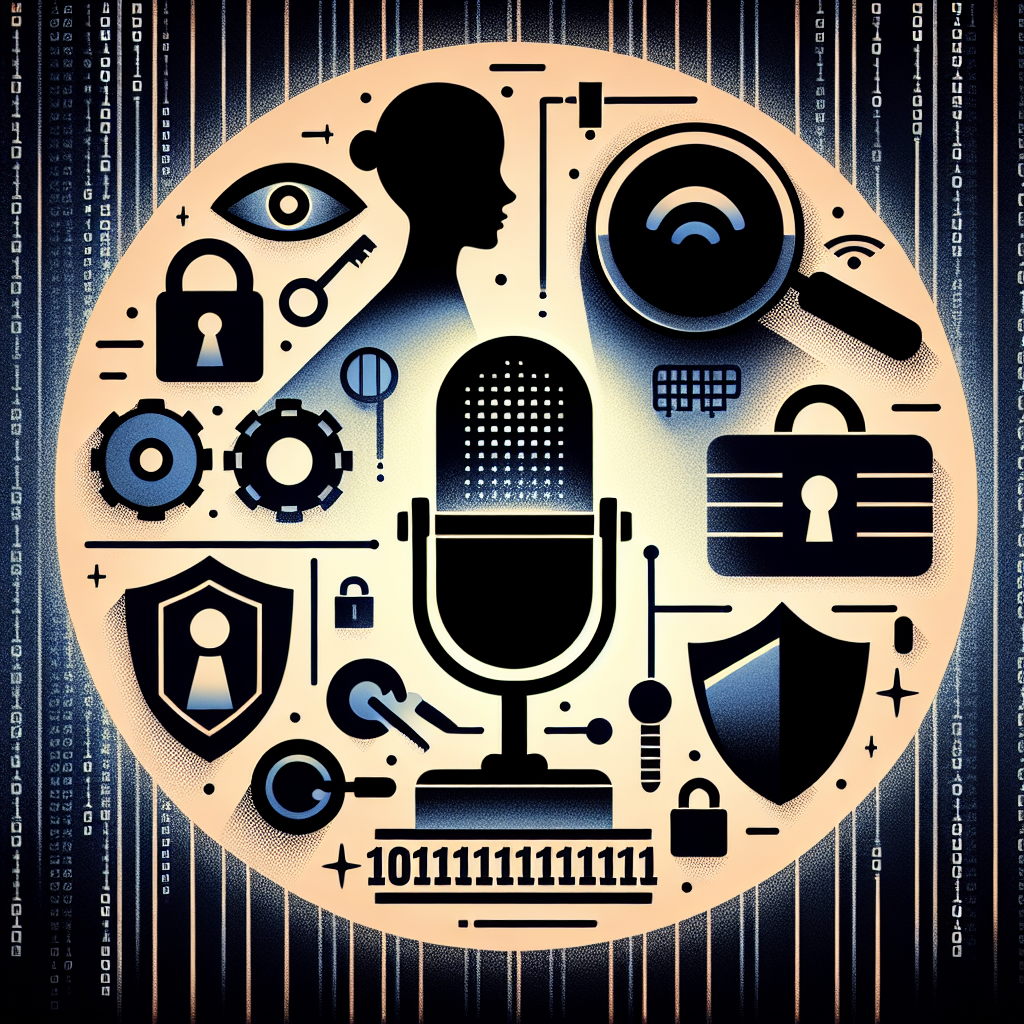Addressing Privacy Concerns in AI-powered Voice Assistants
AI-powered voice assistants have become an integral part of our daily lives, making tasks easier and more convenient. From setting reminders to controlling smart home devices, these assistants have revolutionized the way we interact with technology. However, with the convenience of voice assistants comes the concern of privacy. Many users are wary of the amount of personal information these assistants collect and store. In this article, we will explore the privacy concerns associated with AI-powered voice assistants and discuss ways to address them.
Privacy Concerns in AI-powered Voice Assistants
One of the main privacy concerns with AI-powered voice assistants is the amount of data they collect. These assistants are constantly listening for wake words, which means they are always on and potentially recording conversations. This raises concerns about who has access to this data and how it is being used. There have been reports of voice recordings being stored and reviewed by human employees for quality control purposes, leading to fears of privacy breaches.
Another concern is the potential for accidental activation of voice assistants. There have been instances where voice assistants have been triggered by background noise or similar-sounding words, leading to unintended recordings. This can result in the collection of sensitive information without the user’s knowledge or consent.
Additionally, there is the risk of voice assistant devices being hacked. If a hacker gains access to a voice assistant, they could potentially listen in on conversations, gather personal information, or even control smart home devices. This poses a serious threat to the user’s privacy and security.
Addressing Privacy Concerns
Despite these concerns, there are steps that can be taken to address privacy issues associated with AI-powered voice assistants:
1. Review Privacy Settings: Most voice assistants have privacy settings that allow users to control what data is collected and how it is used. Take the time to review these settings and adjust them to your comfort level. You can usually opt-out of data collection for things like voice recordings and location information.
2. Limit Data Sharing: Be cautious about the information you share with your voice assistant. Avoid sharing sensitive information such as passwords, social security numbers, or financial details. Stick to using your voice assistant for general tasks and avoid sharing personal information.
3. Use Strong Passwords: Make sure to set strong, unique passwords for your voice assistant devices to prevent unauthorized access. Change your passwords regularly and avoid using easily guessable passwords.
4. Update Software: Keep your voice assistant devices and associated apps up to date with the latest software updates. These updates often include security patches that help protect against potential threats.
5. Be Mindful of Placement: Be mindful of where you place your voice assistant device. Avoid placing it in areas where it can easily pick up conversations or other sounds that you don’t want recorded.
6. Educate Yourself: Stay informed about the latest privacy policies and practices of the voice assistant companies. Familiarize yourself with how your data is being used and what measures are in place to protect your privacy.
FAQs
Q: Can voice assistants listen to my conversations all the time?
A: Voice assistants are designed to listen for wake words to activate, but they are not constantly recording or storing conversations. However, there have been instances of accidental recordings due to background noise or similar-sounding words.
Q: Can voice assistants store and share my voice recordings with others?
A: Voice assistant companies may store voice recordings for quality control purposes, but they typically have policies in place to protect user privacy. You can review and delete voice recordings through privacy settings.
Q: How can I prevent accidental activation of my voice assistant?
A: You can prevent accidental activation by adjusting sensitivity settings, choosing a unique wake word, and being mindful of where you place your voice assistant device.
Q: Are voice assistant devices secure from hacking?
A: Voice assistant devices are vulnerable to hacking, like any other smart device. To protect against hacking, ensure your device is updated with the latest software, use strong passwords, and be cautious about the information you share.
In conclusion, while AI-powered voice assistants offer convenience and efficiency, it is important to be mindful of the privacy concerns associated with these devices. By taking proactive steps to protect your privacy and security, you can enjoy the benefits of voice assistants while minimizing the risks. Stay informed, review privacy settings, and use best practices to ensure your data is protected.

